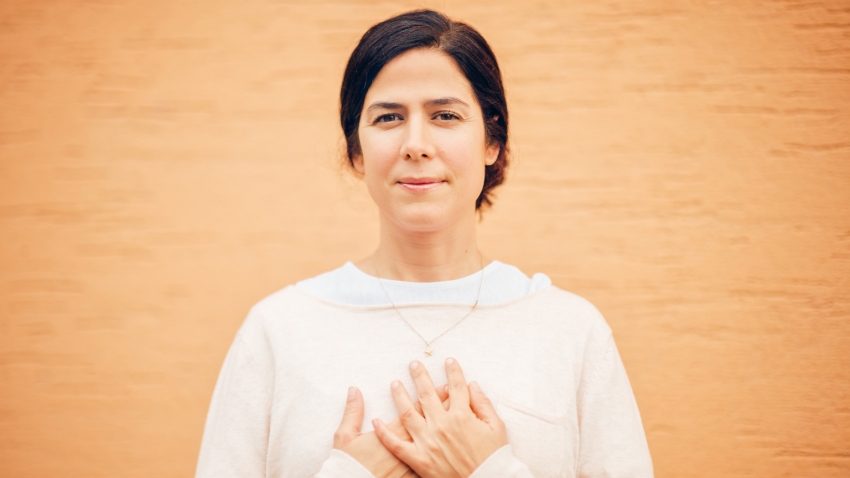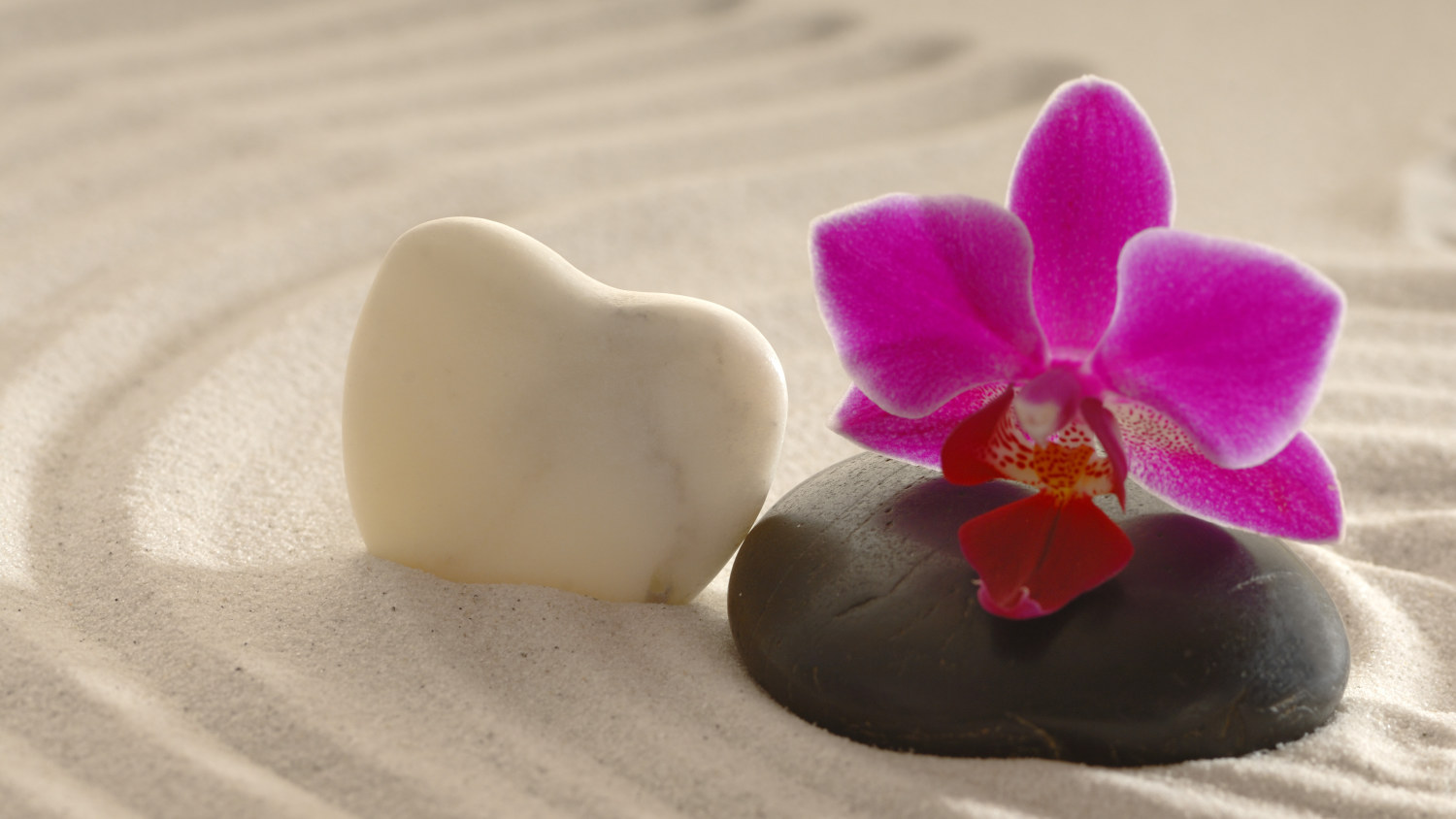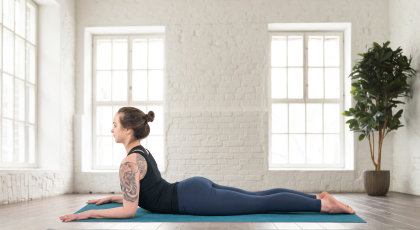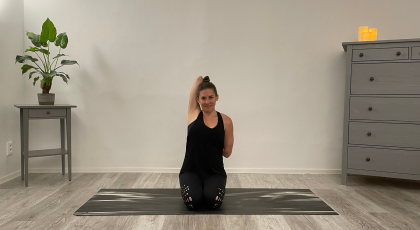View basket (0 items $0.00)

You Are Enough: The Yoga of Self Acceptance
There’s something not being spoken about in the countless self-help books, lifestyle blogs, and gazillions of self-proclaimed “health” gurus. Underlying all these mediums is the message “You could be better, you’re not enough, so do this juicing diet to move toward a fitter, slimmer, happier you.” But here’s the crux of the matter, do you know who “you” are, and do you accept who you are?
When there are uncertainty and confusion, a big void opens in which to sell—sell newspapers, sell yoga pants, sell vegan paleo books, sell gym memberships—and these are just a few of my purchases when I’m embroiled in fits of confusion. Confusion is a key ingredient to promoting a sense of loss over what could have been and what may be, as it pulls you from the concrete moment, right here, right now, and projects to the future or journeys into the past. The mind-body relationship becomes skewed with the thinking organ often scurrying around for a way to “fix” the split within the relationship.
And “fix” becomes the operative word: “I must fix this mess.” For the few times it has actually spurred me on to something great, there are countless times it’s thrown me further into self-reproach and chasing an ideal of what should be. Fixing is part of the message of not being enough, with many people within the healing professions both wanting to be fixed and eager to fix because the perception is, “I am not enough; therefore you are not enough. Let me fix you.”
Do You Actually Need to be Fixed? 
Let me put it out there for a moment. What if you do not need fixing? What if you are utterly perfect as you are, sitting here reading these words? Just be with this for a moment, the idea that you are exactly as you should be in this moment.
It’s not unusual to encounter discomfort, perhaps even cringing and anxiety, as you ponder the idea of being perfectly enough. It goes against everything we’re taught from our earliest years that despite the best efforts there’s always room for improvement.
Here’s something I’ve marveled at for years and often say to students in my class. You and I have defied the greatest odds to be here right now: from the race of the sperm en route to the egg and the various dangers in pregnancy to the absolute fine-tuning of our cells to enable to live consciously. Our bodies are a vast network of secret and well-known tunnels communicating with the environment to make us who we are, with the force of life pumping through all that lives.
It’s deeply moving to think I exist, but there would be no I without you. We are in constant relationship, and the web of life within and without is what makes you and I so intrinsically perfect without consciously trying.
The Paradoxical Theory of Change
As you sit here now, ponder this for a few moments: change occurs when you become what you are, not when you try to become what you are not. Can you embrace who you are, warts and all, at this moment without imposing conditions? View yourself from the outside and know that you are exactly as you should be.
It was on a retreat with Matthew Sweeney that I heard the concept of Paradoxical Theory of Change, and it changed me forever. (A concept of the gestalt approach to therapy, Paradoxical Theory of Change, in a nutshell, theorizes that “change occurs when one becomes what he is, not when he tries to become what he is not.”) (1)
I realized I’d spent my whole frigging life until that point, chasing an idea of what I should be according to my interests at any given one moment. I never felt enough; I could do better.
Until around this time, my teaching and practice of yoga reflected my inner conflict, and I was uncompassionate with myself and students. While it’s never been brought to my attention that I injured students, I certainly injured my own precious body by chasing a method that encourages extreme movement and self-sacrifice to the teachings. Once I felt the truth of acceptance, I could no longer rationalize the method, and ever since then have asked myself daily if am I honoring who I am right now. 
Connect With Who You Are
Now I feel a fire within my belly, tingling in my fingertips as I implore you to take time daily to connect with yourself. Feel the sensations of your beautiful organism, the whirling of your mind and wait patiently for the dust to settle. Sense the murmuring of a place that permeates every aspect of your physicality, yet goes beyond.
This place is yours forever, it is infinite, and when you know it exists, you seek ways to honor your being and accept with love and compassion where you are right now.
All the energy consumed by confusion, striving, and regretting is freed up, you are free and can actually hear your inner promptings that were once drowned out by the constant noise of the outside. The change once so desired becomes a way of life, happens as frequently as breath occurs, and is underpinned by loving acceptance of who you are, with the deep knowing that you are enough.
Here's another article from YogaUOnline and Charlene McAuley - The Yoga of Embodied Presence: Coming Home to the Body in a Stressed-Out World.
 Gateways to Healing: Yogic Techniques for Pain Relief - Study with YogaUOnline and Yoga Therapist, Susi Hately.
Gateways to Healing: Yogic Techniques for Pain Relief - Study with YogaUOnline and Yoga Therapist, Susi Hately.
Reprinted with permission from Charlene McAuley and this-yoga.com.

Charlene McAuley - My yoga exploration spans 13 years, teaching for almost seven of those years with varied students including World Cup footballers and wise 80-year olds. I have an insatiable fascination with movement and psyche, recognizing many years ago through my yoga practice that movement can determine one’s mindset and mindset can determine one’s movement. I work primarily with the ‘here and now,’ wanting to explore what is occurring in the present moment so that I can encourage myself and students to live with more awareness.
Resources
1. https://www.gestalt.org/arnie.htm
Featured Courses








